
 |
|
|
With the overall objective of improving the living conditions of people living in the project area, the Rural Infrastructure Improvement Project developed a unique strategy for its implementation. Based on its two immediate objectives (i) to improve infrastructure which contributed to the improvement of living conditions in the project area and (ii) to develop an in-country capacity to effectively plan, design, manage and implement rural infrastructure works, the project managed, through its approach of relying mainly on resources available within the country, to produce noticeable results within a short period. As a central part of the implementation strategy, the project adopted a labour-based appropriate technology to carry out the infrastructure works in the rural areas. This "appropriate" technology is defined as one that is both technically and economically efficient for the prescribed level of quality. Thus, appropriate construction technology exists over the entire range of methods. In each case, the appropriate mix of labour and machines was determined by the technical nature of the works, available resources, prevailing prices and the socio-economic environment in which the works were executed. Labour-based technology can be defined as the construction technology which, while maintaining cost competitiveness and acceptable engineering quality standards, maximises opportunities for the employment of labour (skilled and unskilled) together with the support of light equipment and the utilisation of locally available materials and resources. Since much of the work was done by hand, the rural poor not only received the benefits of the finished product but, in addition, secured the much needed income from its construction, considerable employment from its maintenance, and a sense of participation, civic pride and unity. Another central part of labour-based appropriate technology is the focus on the use of in-country resources, not only locally available labour, but also striving to utilise other local resources such as local builders and contractors, locally manufactured tools and equipment, existing government institutions at local level and last but equally important the local human resource base. In order to effectively utilise these local resources the Project undertook a comprehensive training programme providing focused and purpose specific training of government and private sector staff covering all necessary cadres of staff from managers, engineers, technicians, accountants, administration officers, plant operators, store keepers, secretaries, etc. In parallel to the training, the Project developed effective management and administrative procedures, in which a rural infrastructure implementation organisation could effectively operate. This included tailor made procedures for planning, budgeting, accounting, procurement, contracts management, reporting and monitoring. As and integral part of this management system, great emphasis was given to a decentralised management structure where the implementation authority was delegated to the provinces. This capacity building, through its components of staff training and development of effective procedures for management, administration, accounting, procurement and contracting, created an effective implementation capacity within the ministry and its provincial departments enabling them to continue the Governments future efforts in developing the rural areas. The immediate proof of the effectiveness of this strategy and approach to rural development, was the numerous physical outputs which the project already at an early stage exhibited in the rural areas, in terms of rural road construction and maintenance works, provision of potable water, improvement of key irrigation structures, rehabilitation of primary schools, improvement of office facilities in the provincial departments, amongst others.
|
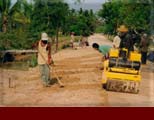
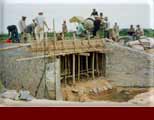
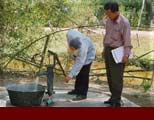

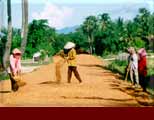


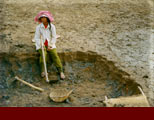
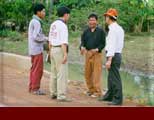
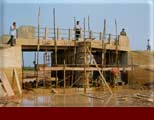
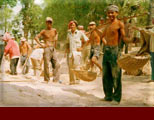
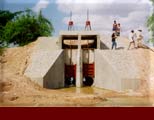
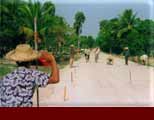
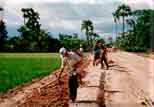 |
 | |
| Last updated 5 July 2003 |
|